
News
Fukushima Youth Project – Staff Interview
August 31, 2011
For a total of 13 days from Saturday July 23 to Thursday August 4, 49 Junior High School students from six different schools in Minamisoma (Fukushima prefecture) participated in the Fukushima Youth Voyage which traveled to Viet Nam, Singapore and Sri Lanka onboard Peace Boat’s 74th Global Voyage. The students enjoyed participating in activities onboard and in the ports of call. For some of them it was their first time to travel overseas and they all gained a lot from the international exchange and learning opportunities. This is an interview with accompanying staff member Ms Yasuhara Hazuki about her experience and thoughts on the project.
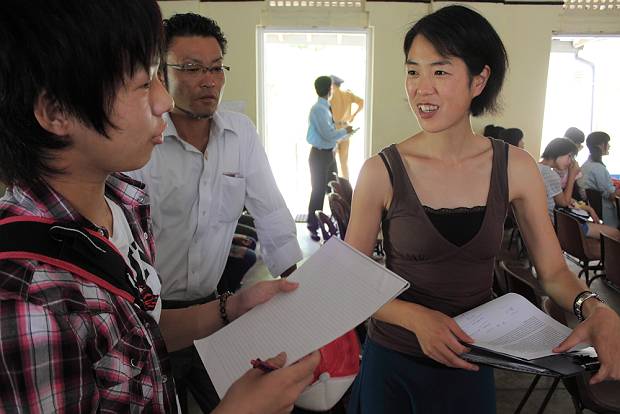
Ms Yasuhara Hazuki (right)
“They played soccer until it got dark and danced around the campfire. Many of the kids played outside as much as possible both on board and in the ports,” comments Ms. Yasuhara. It might seem only natural that children would play outside, but there is a reason Ms Yasuhara emphasized this point at the beginning of the interview.
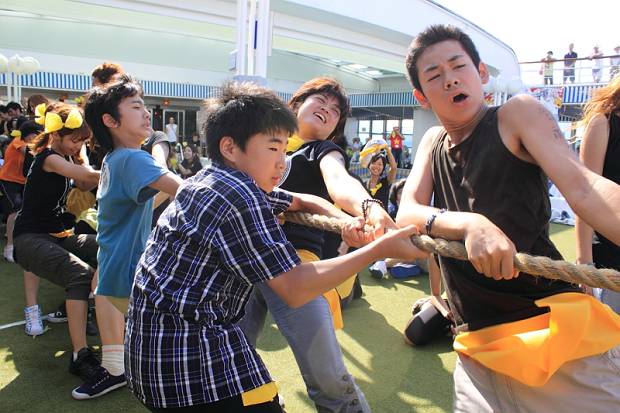
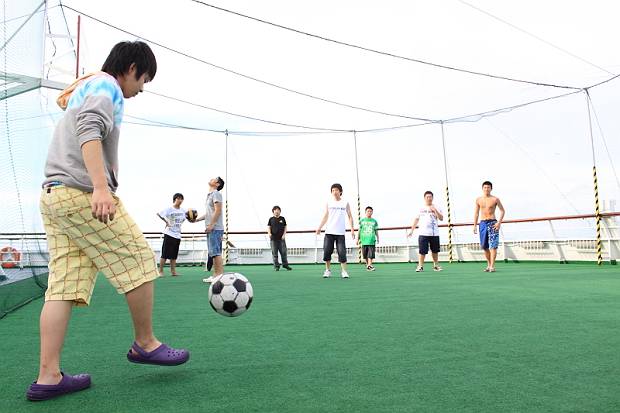
The city of Minamisoma is inside the 40km evacuation zone surrounding the Fukushima Dai-ichi nuclear power plant where the nuclear accident occurred. Residents in this coastal city also suffered extensive damage from the tsunami and have been troubled with the issue of how to continue on with their lives. When this project was initially proposed in June, many people had evacuated the area and only 900 of the 2000 junior high school students originally living in Minamisoma were left. The six junior high schools in the region were all merged at the campus of Kashima Junior High School, with each school using different classrooms for their classes. Despite being in the same environment, there was not much opportunity to mix and make friends with each other. Sports classes were cancelled, students wore masks to school and even wore long-sleeved clothing inside the classroom and during class. When the participants of the Fukushima Youth Voyage were asked “What are you looking forward to on the ship?” the most popular answer was “the pool!” Ms Yasuhara says that given the situation in Minamisoma she could she why that was their answer. “As time went on after the disaster occurred, many children had to say more and more goodbyes to their friends as people evacuated. At the end of the cultural exchange event with youth in Viet Nam, the youth from Viet Nam came to the dock to see the ship off and this reminded some of the Minamisoma students of the many goodbyes they had said to their friends. Each of the students have come from different situations and this made me realize the difficulty of the environment they had been facing for more than 4 months since the disaster.”

Having formerly worked for Peace Boat, Ms Yasuhara learned of the Fukushima Youth Project in late June and decided to once again board the ship to support this project. She further spoke about her reason for getting involved: “After the disaster occurred I went to Ishinomaki to help with the emergency relief operation but the situation in Fukushima kept bothering me. I often travel overseas in my job but it made me think about nuclear accidents in Japan, a country which has already suffered from the effects of nuclear radiation in Hiroshima and Nagasaki. Having experienced Hiroshima, Nagasaki and Fukushima, I thought about what Japan should do from here on. Before the disaster occurred I had worked at a nature school at the foot of Mt Fuji that hosted youth camps and school trips. I thought that I could help with this project in some way because of my experience.” Having experience hosting youth groups in Japan is one thing, but hosting a group of young students on an overseas trip was a different experience for Ms Yasuhara. “The kids don’t wear watches so they were late, they fight, they got in trouble for running around at night, and they just couldn’t understand why their passports were so important. They would leave them lying around while the went to the bathroom, or went off to have fun. No matter how many times I explained how important passports were, before I knew it they had left them lying around again,” says Ms Yasuhara with a laugh.
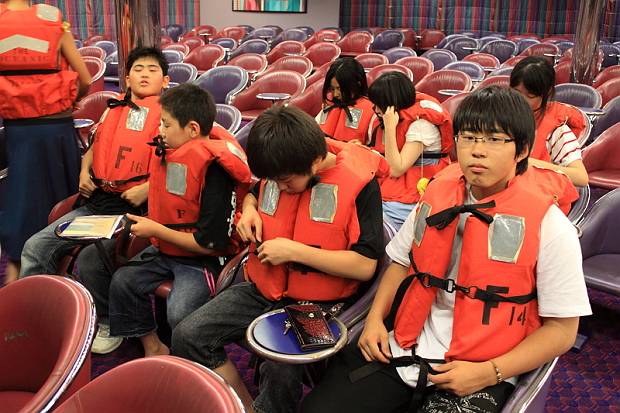
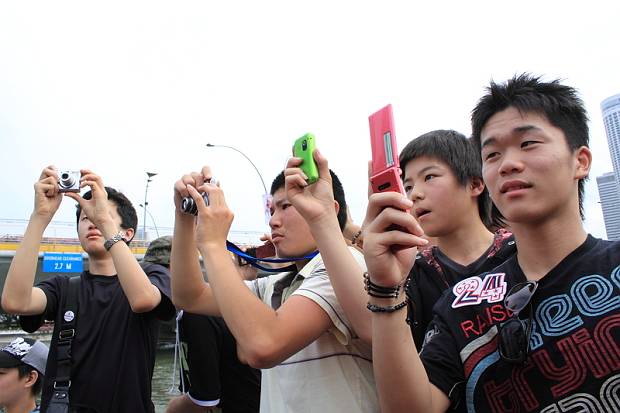
You can imagine what it would have been like with 49 Junior High School students excited about their first trip overseas. However, Ms Yasuhara is glad to have been involved. She explains, “I think the cultural exchange experience made Japan’s neighboring Asian countries seem closer and dispelled some stereotypical opinions about these countries. Some of the kids said things like: ‘Even though the people were foreigners they seemed similar to Japanese people’ ‘I was happy because everyone was really nice’ ‘It’s fun getting to know new people.’ Before the voyage, some of the kids were on the verge of distancing themselves from people because of experiencing so many goodbyes back home. I believe that these comments from the kids show that despite this, the experiences that they had during the voyage made them think in a positive way about meeting new people. After meeting with children facing difficulties in Viet Nam and Sri Lanka, one of the kids said, ‘I am going to try hard just like they are and live each day of my life so that I have no regrets.’”
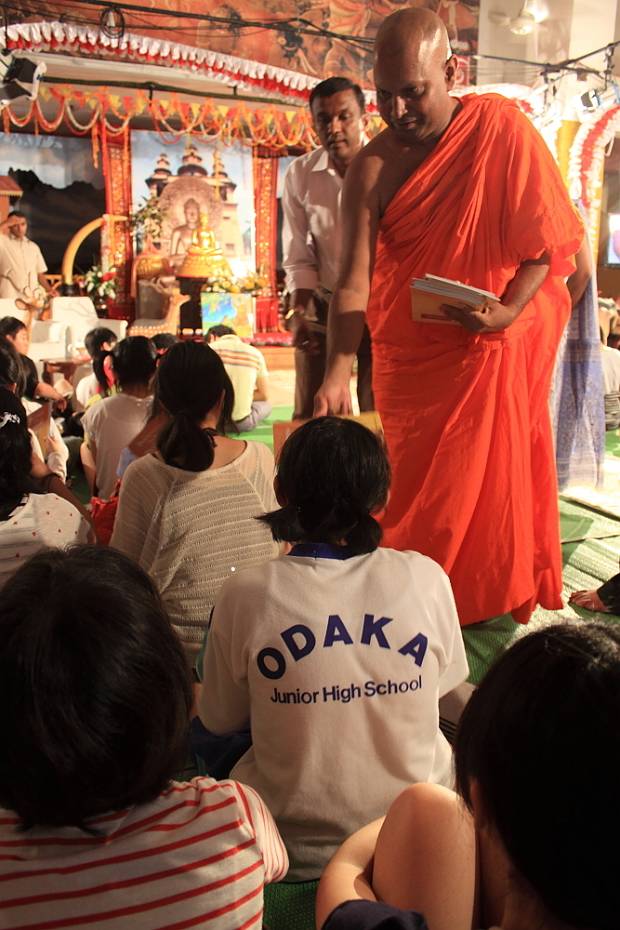
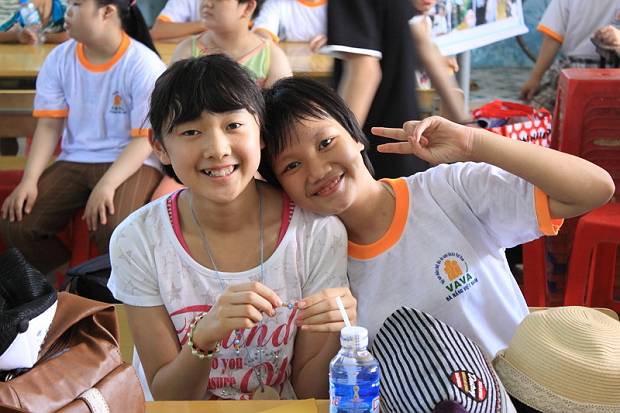
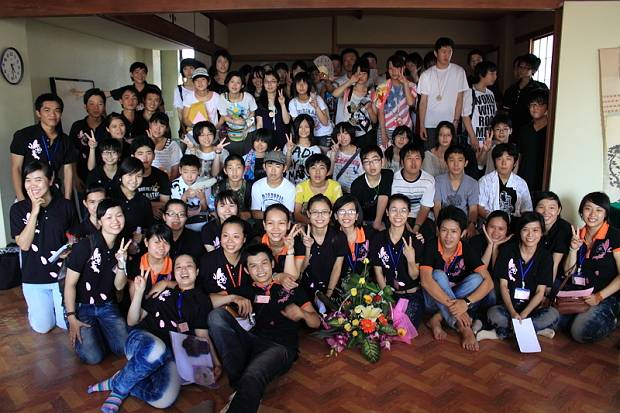
The last question asked of Ms Yasuhara was, “What changes did you see in the children over the 13 days?” She responded, “their facial expressions changed. The 49 students from 6 different schools all changed in different ways. My first impression was that it was impossible to organize them all to do the same thing at the same time. In the case of Kashima Junior High, it couldn’t be helped that the students weren’t making new friends because they were in separate classes. On Peace Boat, as the students got to know one another and call each other by name, they started to smile more. Their time together was short but it was intense with the exchange programme in Viet Nam, the onboard sports festival with all generations and the special classes on board. When the group waved goodbye to Peace Boat in Sri Lanka, they all shouted “Thank you!” in unison. They kept watching the ship as it departed. The kids had been bottling up their emotions since the disaster occurred but I think they got to spend their summer vacation traveling to different countries, doing things that they enjoy and making many new friends.”
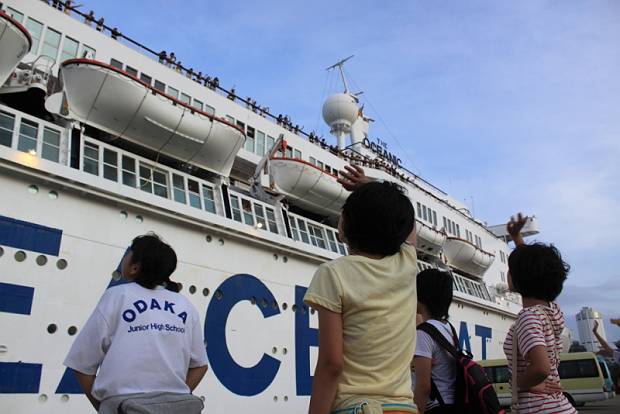
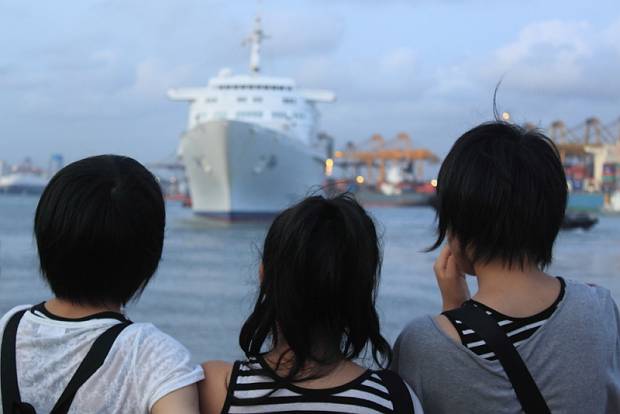
Photos: Kataoka Kazushi
TAGS: children • Disaster Relief • Fukushima • Fukushima Youth Project • Japan • Kanto-Tohoku Earthquake and Tsunami • Minamisoma • Peace Boat • peaceboat • Relief


